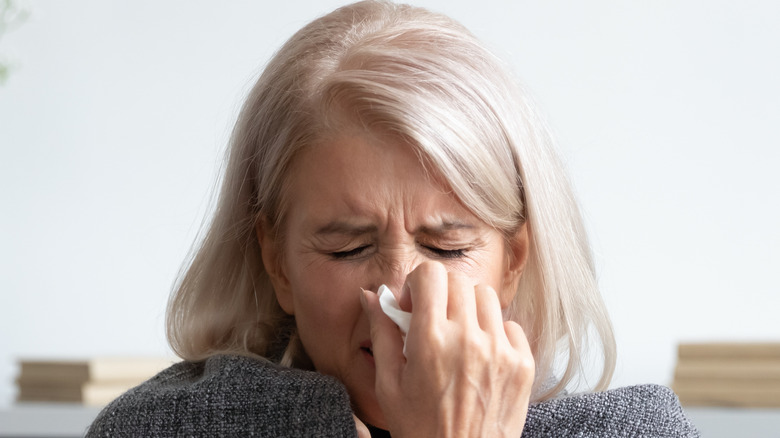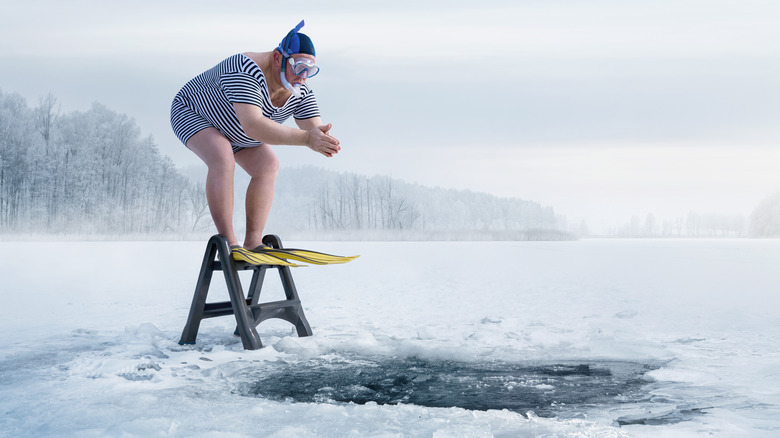Can You Really Catch A Cold Just By Being Cold?
How many times did your mother grab you by the arm when you were a kid, pull you back into the house, make you put on a hat before you hopped into a pile of snow, and say: "You'll catch a cold!" It seems to be embedded in our minds as common knowledge that if you're not careful in the colder months of the year, you'll come down with a nasty infection that could have been avoided if you'd just listened to mom and bundled up. However, it's most likely not true, as most of the evidence compiled by scientists and other experts disproves this theory.
It isn't entirely false to assume that frigid weather could accommodate certain viruses that lead to a cold though. 5 to 20% of Americans come down with colds or the flu every year when temperatures happen to be lower, so there's at least a loose correlation to be observed (per Mental Floss). But what's really going on under the microscope?
Why you get sick
"You can't get sick from being cold in general, whether you are outside or inside," says Shannon Fecher, ARNP of UnityPointHealth. With the exception of hypothermia and frostbite, there is no explicit way in which the cold alone definitively hurts your immune system. However, dry air that accompanies winter and fall temperatures does in fact accommodate certain viruses that cause colds and flus, helping them to survive longer on different surfaces (door knobs, counter tops, etc.) as well as in the air. It also dehydrates mucus and dries out nasal passages, both of which provide a place for viruses to bed down and spread.
Otherwise, sickness doesn't result from the cold air itself, though outside temperature can act as a kind of conduit that makes illness more likely (per Mental Floss). So yes, you can dive into a lake in the middle of February without risking the chance of a runny nose, but if you care about your fingers, toes, or mother's peace of mind, you ought to think twice before you ice.

